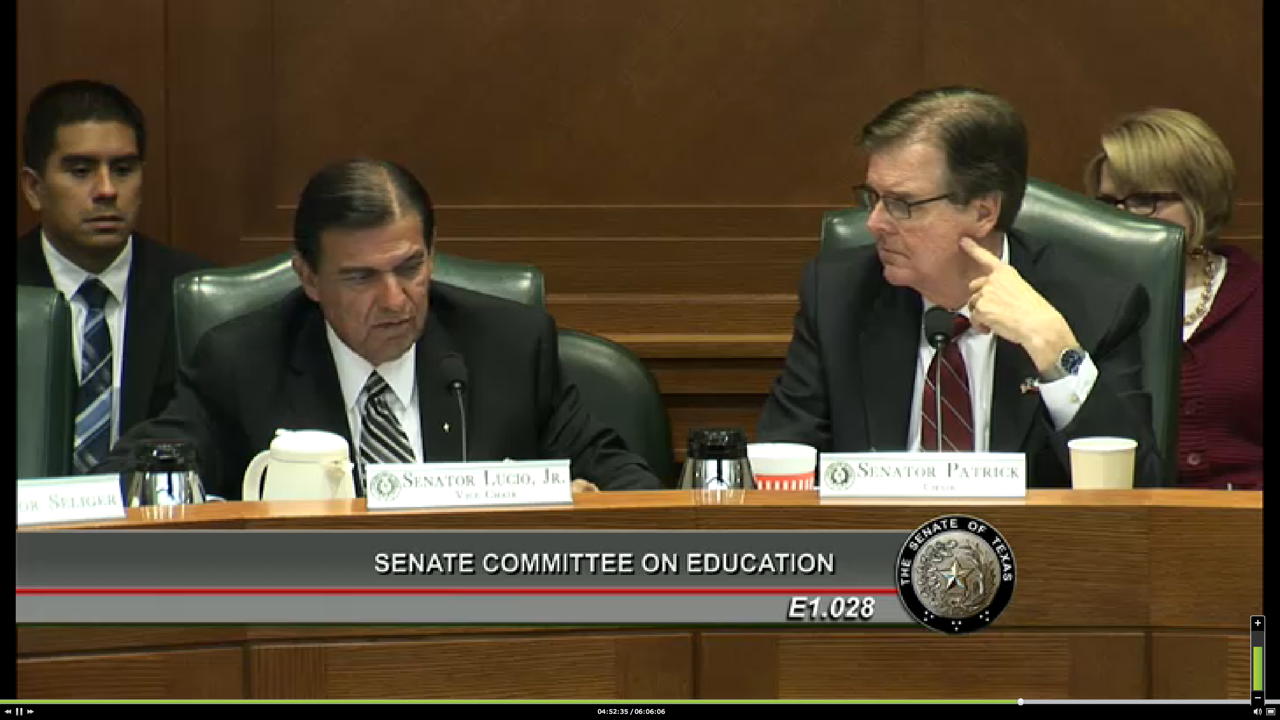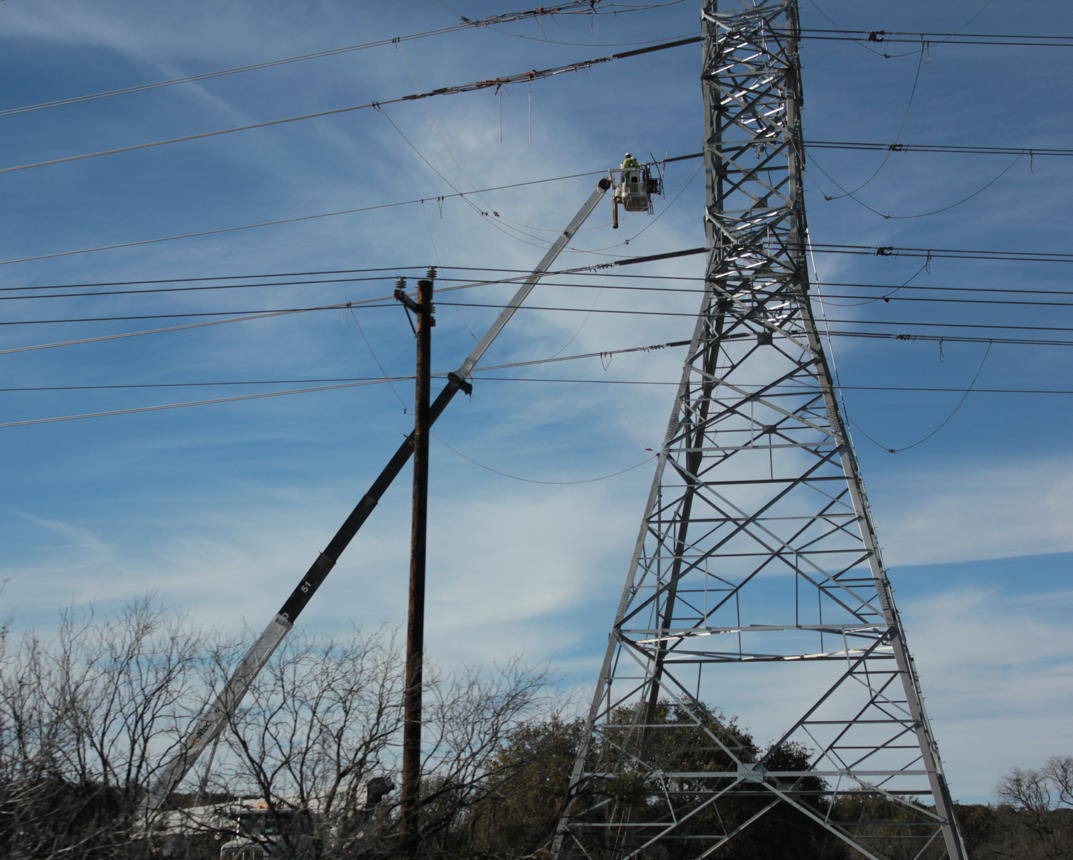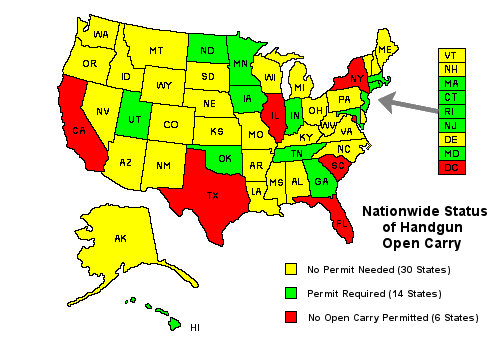Texas 2014
My girlfriend and I moved to Texas in December—about which I’ll have more to say later. So I expect I’ll be writing more about Texan issues than about California issues from now on. That’s part of why I added the last California update to California 2013 instead of making a new one (also because they referenced things that happened in 2013).
- December 17, 2014: Texas school choice
-

“Did he just tell us that parents can’t be trusted with their own children?” “Ignore it and think of your after-committee martini.”
If I were to tell you that education reformers in Texas were complaining about schools that were:
- unaccountable
- financially mismanaged
- and that provide no due process
I think people who have read about crazy zero-tolerance policies and teachers and school administrators going to jail would think I was talking about public schools. But no, the teacher organizations in Texas think that being able to choose your children’s schools—and remove them with no state pushback would mean that the school faces no accountability. That not having the government to bail them out would mean financial mismanagement. And that due process is even necessary when all you have to do is say “you have no authority over my child”.
I heard all of this during the Texas Senate Committee on Education’s public testimony hearing on school choice programs.
Part of the disconnect between education reform advocates and the forces of the status quo is, whose money is it, anyway? Joe Carnas the 3rd of The Texas Latino Education Coalition (4:23–4:24) thinks that parents should have no control over where their school monies go because it isn’t their money. Allowing them to choose non-government schools has nothing to do with their choice:
Truly one of the pillars of Texas government is the institution of education. Parents should have the choice to send their children to private or parochial schools but not with public monies.
Choice, you see, is inappropriate when parents might make the wrong choice, and when it comes to giving parents a choice, every choice is a bad one:
… the debate over vouchers during previous legislative sessions has moved approaches into parallel discussions over other privatization policy issues such as tax-credit scholarships, equal opportunity scholarships, parent trigger laws, home rule charter districts, and charter school expansions. Choice, senators, is a farce when the choice is a bad one.
And the issue is one of control, as well. These groups see that government schools control parents and students, and think that somehow a private institution that has no power will exercise the same control.
- April 29, 2014: TXU bets against deregulation and loses
-

Texas puts up more transmission lines along Route 90. (John Cummings, CC-BY-SA 3.0)
TXU was once the only game in town for energy here and throughout much of Texas. They had all the advantages when Texas deregulated electricity. They, or, more specifically, their owner, Energy Future Holdings, just filed for bankruptcy. Why?
In the deregulated Texas market, electricity prices are strongly related to those of natural gas. That fact, essentially, made the buyout of Energy Future Holdings a towering bet on the price of natural gas.
But instead of rising, natural gas prices fell. And kept falling. That led to billions of dollars in losses at the company.
In essence, they bet against deregulation helping consumers, and lost big.
When we first came out to work on our house last year, I was amazed at how easy it was to set up electricity. We had it purchased and then timed it to start the day we arrived. It’s almost as if having to compete for our business meant they had to work to convince us!
Compare this to California, where the power companies were re-regulated to give more power to the state to control every aspect of power delivery by forcing us to buy power through exchanges. Prices skyrocketed until the law was repealed. But California still has monopolies, and the cost of electricity is still ridiculously high. My last bill here in Texas was for 813 kWh; my total bill was $90. The same amount in San Diego would cost $255 according to SDG&E.
And that Texas bill includes being able to pay for my bill with an auto-deduction from my credit card.1
If I wanted to pay more, I could. If I wanted to pay less, I could. The plan I chose gave me the level of confidence I wanted and the ease of use I wanted combined with the price I was willing to pay for it. I did not choose TXU: I looked at it, and their prices seemed to be higher while offering fewer options with poorer-quality account management. It looked, in other words, like what a government monopoly might do when it doesn’t understand that the market has changed.
- April 7, 2014: Texas open carry Senate hearing
-
I recently read P.J. O’Rourke’s Parliament of Whores, and in it he makes the point that we rarely thank our elected officials for what is in fact an often thankless job.
I just listened to a public hearing of the Texas Senate’s Agriculture, Rural Affairs & Homeland Security Committee. The hearing began at 9 AM. I woke up about 11:30 AM and started listening at about noon after leisurely making breakfast. The hearing continued until 5:36 PM. Most of the legislators appear1 to have left by 3 or so, but the chairman, Senator Craig Estes, remained to the end.
So, Senator Craig Estes, thank you very much. You did a great job.
There were three purposes of today’s hearing, which is probably why it went so long. The third (Interim Charge 5), and why I was interested, was
Study and make recommendations on removing barriers to Second Amendment Rights, including but not limited to open carry legislation. Consider other state laws related to open carry.
Open carry, believe it or not, is illegal in Texas. Despite our reputation, we’re one of only six states that has no open carry.2
Most of the people at the hearing were in favor of joining the majority of states that allow open carry. Some of the Senators are still arguing the last war: they’re using the same arguments used against concealed carry, that it’s going to result in more arguments escalating to murder, that people are not going to be able to trust their neighbor if they think their neighbor might be carrying, and what will the children think?
All of the failed arguments against concealed carry, without regard to the fact that none of these things happen in other states that allow concealed—or open—carry.
- California 2013
- News and Stuff about California and San Diego in 2013.

